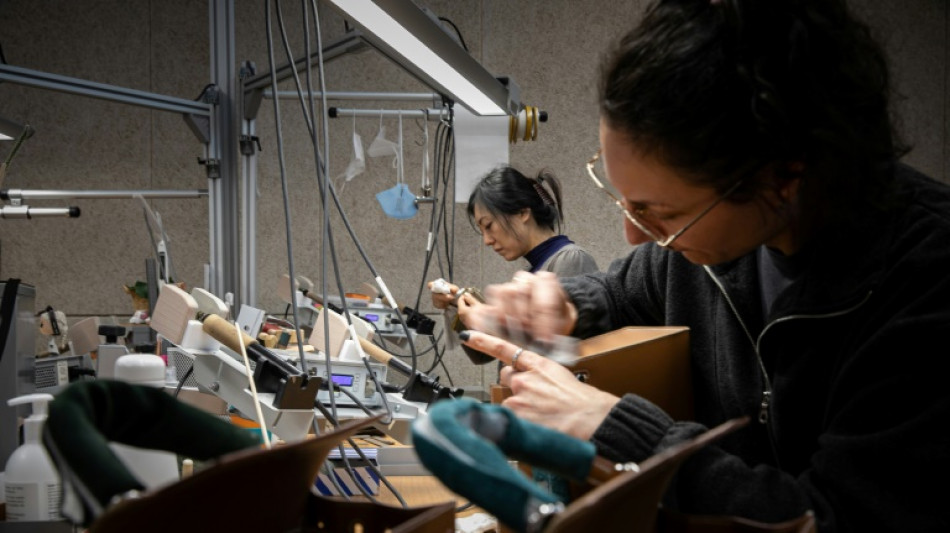
-
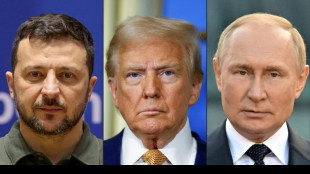 Kyiv won't give up land, says Zelensky as US-Russia summit confirmed
Kyiv won't give up land, says Zelensky as US-Russia summit confirmed
-
Kyiv won't give up land, says Zelensky as US-Russia confirm summit
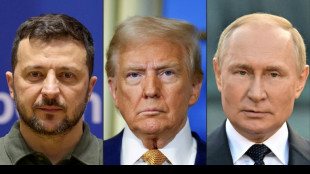
-
 North Korea removing border loudspeakers: Seoul military
North Korea removing border loudspeakers: Seoul military
-
Gunman kills police officer near Atlanta CDC headquarters

-
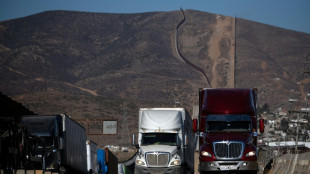 Mexico discounts risk of 'invasion' after Trump order to target cartels
Mexico discounts risk of 'invasion' after Trump order to target cartels
-
Nawaz sparks Pakistan to five-wicket ODI win over West Indies

-
 Lions' Norris hospitalized after scary injury, NFL pre-season game suspended
Lions' Norris hospitalized after scary injury, NFL pre-season game suspended
-
Restored Nagasaki bell rings in 80 years since A-bomb
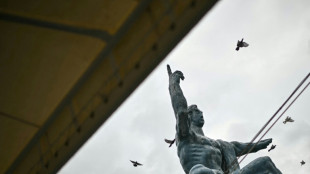
-
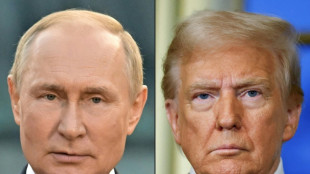 Putin-Trump summit: what we know so far
Putin-Trump summit: what we know so far
-
Australia settle on Marsh and Head as T20 openers

-
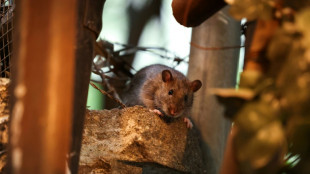 New York declares total war on prolific rat population
New York declares total war on prolific rat population
-
Patriots unveil statue honoring iconic quarterback Tom Brady

-
 Slot's new-look Liverpool under the spotlight in Community Shield
Slot's new-look Liverpool under the spotlight in Community Shield
-
Five astronauts leave space station for trip back to Earth

-
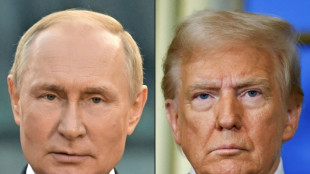 Trump and Putin to meet in Alaska next Friday
Trump and Putin to meet in Alaska next Friday
-
NBA to open season with blockbuster showdowns: report

-
 Brazil's Lula vetoes parts of environmental 'devastation bill'
Brazil's Lula vetoes parts of environmental 'devastation bill'
-
Trump says Armenia, Azerbaijan commit to end fighting 'forever'
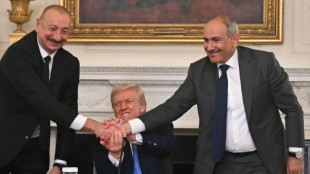
-
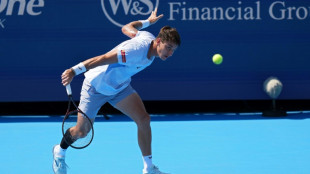 Toronto champion Shelton to start Cincy against Argentine outsider
Toronto champion Shelton to start Cincy against Argentine outsider
-
US astronaut Jim Lovell, commander of Apollo 13, dead at 97

-
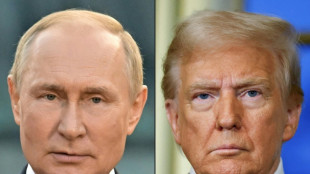 Trump says to meet Putin next Friday in Alaska
Trump says to meet Putin next Friday in Alaska
-
Fire extinguished, historic mosque-cathedral in southern Spain 'saved'

-
 Trump demands $1bn from University of California over UCLA protests
Trump demands $1bn from University of California over UCLA protests
-
Fire contained, historic mosque-cathedral in southern Spain 'saved'

-
 US health chief based vaccine cuts on misinformation, researchers say
US health chief based vaccine cuts on misinformation, researchers say
-
US astronaut Jim Lovell, commander of imperiled Apollo 13, dead at 97

-
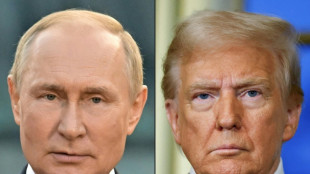 Trump says will meet with Putin 'very shortly'
Trump says will meet with Putin 'very shortly'
-
Barcelona reinstate Ter Stegen as captain

-
 Fleetwood leads St. Jude in search of first US PGA Tour title
Fleetwood leads St. Jude in search of first US PGA Tour title
-
Gold futures hit record on US tariff shock; mixed day for stocks
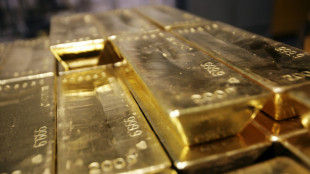
-
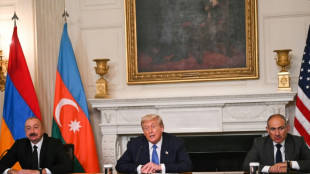 Trump says Armenia, Azerbaijan committed to end fighting 'forever'
Trump says Armenia, Azerbaijan committed to end fighting 'forever'
-
England's injured Woakes still has Ashes hopes

-
 US astronaut Jim Lovell, Apollo 13 commander, dead at 97
US astronaut Jim Lovell, Apollo 13 commander, dead at 97
-
Swiss gold refining sector stung by US tariffs
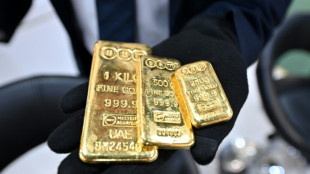
-
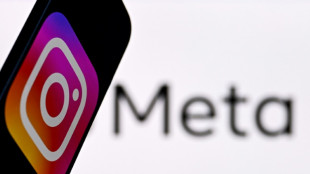 New Instagram location sharing feature sparks privacy fears
New Instagram location sharing feature sparks privacy fears
-
Spain's Badosa withdraws from US Open

-
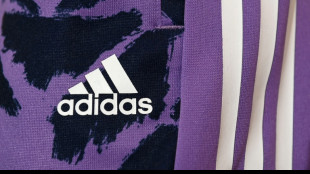 Mexico seeks compensation from Adidas in cultural appropriation row
Mexico seeks compensation from Adidas in cultural appropriation row
-
NBA Celtics sign Mazzulla to coaching contract extension

-
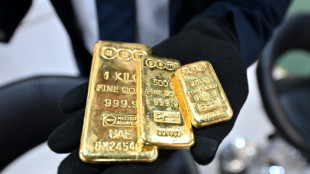 Swiss gold refining sector hits US tariff mine
Swiss gold refining sector hits US tariff mine
-
Ter Stegen responds after Barcelona strips him of captaincy

-
 Chelsea's Broja joins Burnley on five-year deal
Chelsea's Broja joins Burnley on five-year deal
-
Three centurions as 'ruthless' New Zealand pile on runs against Zimbabwe

-
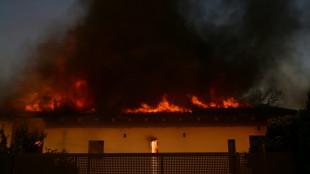 Three die in Greece as gales stoke fires, disrupt ferries
Three die in Greece as gales stoke fires, disrupt ferries
-
ICC unseals Libya war crimes warrant for militia officer

-
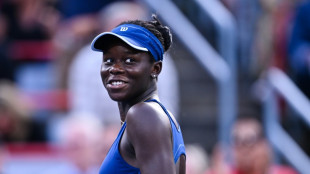 Montreal protagonists Mboko, Osaka out of Cincinnati Open
Montreal protagonists Mboko, Osaka out of Cincinnati Open
-
Trump says court halt of tariffs would cause 'Great Depression'
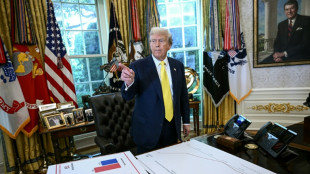
-
 Glasner says demotion to Conference League would punish 'innocent' Palace
Glasner says demotion to Conference League would punish 'innocent' Palace
-
New Zealand build big total in 2nd Test against Zimbabwe

-
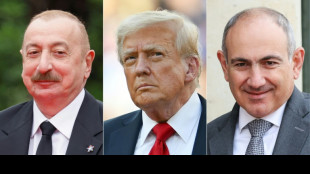 Trump hosts foes Armenia, Azerbaijan in his latest peace initiative
Trump hosts foes Armenia, Azerbaijan in his latest peace initiative
-
Nigerian scientists await return of Egusi seeds sent to space
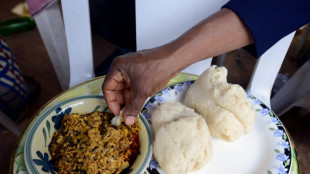
| SCU | 0% | 12.72 | $ | |
| CMSD | 0.25% | 23.58 | $ | |
| BCC | -1.34% | 82.09 | $ | |
| CMSC | 0.39% | 23.05 | $ | |
| GSK | 0.58% | 37.8 | $ | |
| BP | -0.15% | 34.14 | $ | |
| AZN | -0.69% | 73.55 | $ | |
| RBGPF | 1.7% | 73.08 | $ | |
| BTI | 0.96% | 57.24 | $ | |
| NGG | -1.51% | 71.01 | $ | |
| JRI | 0.19% | 13.435 | $ | |
| BCE | 2.34% | 24.35 | $ | |
| RELX | -2.2% | 48 | $ | |
| RYCEF | -0.14% | 14.42 | $ | |
| SCS | -0.76% | 15.88 | $ | |
| VOD | 0.88% | 11.36 | $ | |
| RIO | 1.76% | 61.86 | $ |

TikTok videos exploit trade war to sell fake luxury goods
TikTok abounds with viral videos accusing prestigious brands of secretly manufacturing luxury goods in China so they can be sold at cut prices.
But while these "revelations" are spurious, behind them lurks a well-oiled machine for selling counterfeit goods that is making the most of the confusion surrounding trade tariffs.
Chinese content creators who portray themselves as workers or subcontractors in the luxury goods business claim that Beijing has lifted confidentiality clauses on local subcontractors as a way to respond to the huge hike in customs duties imposed on China by US President Donald Trump.
They say this Chinese decision, of which AFP has found no trace, authorises them to reveal the hidden underbelly of luxury goods manufacturing in China.
They encourage Western consumers to buy directly from the websites selling these goods, which bear no logos or labels but are said to be of the same quality and design as the expensive originals.
The prices are alluring too, dropping from $38,000 for a luxury bag to $1,400.
Brands targeted -- which include Hermes, Chanel and Louis Vuitton, whose goods are produced in Europe and the United States according to their websites -- declined to respond to AFP questions about the claims made in these viral videos.
But for Jacques Carles, head of the French Luxury and Design Centre, a management consultancy, the notion that luxury brands would manufacture goods in China is simply "absurd".
"It would be suicidal. If there was evidence -- and there isn't -- it would be the end. These brands aren't stupid," he told AFP.
While the TikTokers point to the skill of the Chinese workers, presented as the little hands behind the big luxury names, "these counterfeit workshops absolutely do not respect all the required stages in the manufacturing process", he said.
- 'Creating doubt' -
Carles cited the example of Hermes's Birkin bag, which requires "hundreds of hours of work" to produce.
He said the internet clip makers were, "by creating doubt", actually looking to "open up an opportunity... to shift their stocks" of counterfeit goods.
"It's a viral campaign that's spread on social networks (and) is difficult to counter," he said.
Luxury brands chose to remain silent and "treat the phenomenon with scorn", which was a mistake in his view, he added.
The accusation that luxury goods officially manufactured in Europe were in reality being secretly made in China "does not make any sense", concurred Michel Phan, professor of luxury marketing at emlyon business school in France.
He rejected the argument made on TikTok that this was a Chinese retort to US trade tariffs.
"Hurting European luxury brands will not change anything (for) the US government because they are not related to those brands," he said.
"All the videos online mentioning that luxury brands manufactured their products in China and then put the 'Made in France' label before selling them are nonsense.
"It is illegal to do so and no brand will take the risk to get caught (sic) doing it."
The e-commerce department at China's trade ministry said in a statement: "Any misleading marketing, infringement, or counterfeit activities" by entities posing as subconstractors for established brands "will be promptly referred to law enforcement agencies for investigation and action."
- 'I'm such a sucker' -
Comments on the viral clips, portrayed as coming from internet users rather than the video creators themselves, seem to show that the message resonates.
"I'm so annoyed. I paid top price!" said one in a video comment.
"I'm such a sucker," said another.
Some leave comments asking for the names of "suppliers of luxury goods" in China from whom they can buy the coveted items on the cheap.
Meanwhile, Chinese vendors are also selling counterfeit luxury goods directly on TikTok, with links to their websites. These TikTok live reels garner hundreds of views each.
They show row upon row of shelves full of luxury items, all numbered.
"DHL delivery. Products identical to those in stores. The only difference is the price," says one, using an AI-generated voice in French.
Internet users are invited to scan a QR code or click on a link to complete their purchase via WhatsApp or PayPal.
AFP has found a score of similar live feeds, released simultaneously in English and French, suggesting that the main targets are internet users in Europe and the United States.
China is regularly accused of being the world's top producer of counterfeit goods.
Some estimates suggest 70 to 80 percent of all fakes are manufactured there.
In European Union states and a number of other countries there are hefty penalties for purchasing counterfeits.
In France, that could mean a three-year prison term and a fine of 300,000 euros ($340,600).
Customs authorities may also confiscate counterfeit goods and fine the purchaser the equivalent of the items' true value.
The European Union Intellectual Property Office (EUIPO) says counterfeiting costs European industry 16 billion euros a year, with the clothes, cosmetics and toy sectors being the worst affected.
Z.Ramadan--SF-PST
